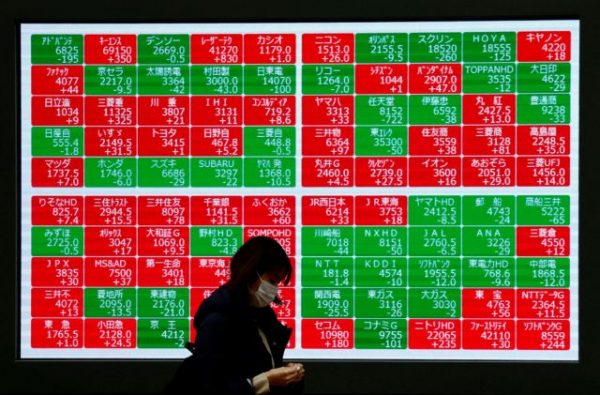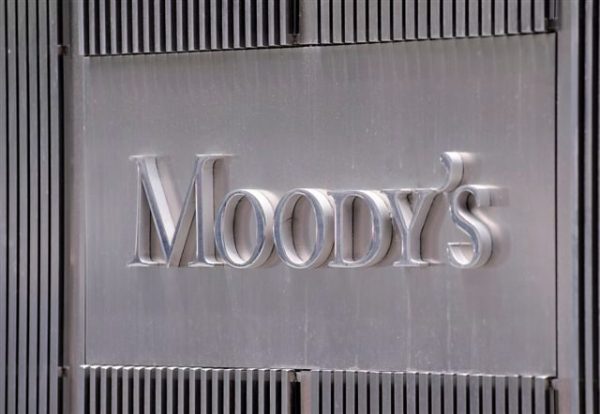
Resilience in the face of inflationary pressures and increasing uncertainty was shown by household consumption expenditure, at least until August. This is what the economists of Eurobank point out, evaluating the data of ELSTAT in relation to retail sales.
The data
According to the data of the Hellenic Statistical Authority (ELSTAT), the retail trade volume index, a measure that shows the sales of the sector in question at constant prices and shows a strong positive correlation with private consumption, strengthened by 0.9% MoM / 4 .3% MoM in August 2022 from 1.5% MoM / 1.4% MoM in July 2022.
For the entire January-August 2022 period, it recorded an increase of 4.6% YoY from 9.0% YoY in the corresponding period of the previous year.
This slowdown, in addition to the effects of the energy crisis and the increase in the price level, was to some extent expected, as the sector in question outperformed in 2021. In particular, retail sales volume in 2021 exceeded pre-pandemic levels , i.e. of 2019, by 6.1%.
As regards the volume of sales in individual store categories for the month of August 2022, the categories of food, beverages and tobacco, pharmaceuticals and cosmetics, furniture, electrical goods and household equipment and books, stationery and other species. Clothing and footwear posted the highest monthly increase of 6.5%, partly due to summer sales, covering almost all of the losses of the previous two months. However, year-on-year, it had the worst performance of all store categories with a 3.4% contraction. Finally, large food stores (super markets) and department stores recorded a decrease in sales volume on a monthly basis by 1.6% and 0.7% respectively, while on an annual basis their performance was relatively weak.
The role of pandemic savings
As Eurobank points out, the resilience shown by household spending, in addition to the government’s support measures against the energy crisis, was what largely contributed to the accumulations of savings during the pandemic.
According to ELSTAT’s accounts of institutional sectors (financial services not included), household consumption in the second quarter of 2022 increased on an annual basis by 20.1% (€6.3 billion), while disposable income only by 1.7% (€0 .5 billion).
Therefore, household saving from the positive territory of €1.1 billion (3.4% as a percentage of disposable income) in the second quarter of 2021 shrank to the negative territory of €4.7 billion (14.2% as percentage of disposable income) in the second quarter of 2022.
Data from these accounts show that accumulated household savings during the pandemic (€8.9 billion cumulatively from Q2 2020 to Q2 2021) largely funded the recovery in household consumption. It is noted that from the third quarter of 2021 to the second quarter of 2022 the accumulated savings of households were reduced by €9.3 billion.
Latest News

Meloni and Trump Meet in Washington, Vow to Strengthen Western Ties
“I am 100% sure there will be no problems reaching a deal on tariffs with the EU—none whatsoever,” Trump stressed.

ECB Cuts Interest Rates by 25 Basis Points in Expected Move
The ECB’s Governing Council opted to lower the deposit facility rate—the benchmark for signaling monetary policy direction—citing an updated assessment of inflation prospects, the dynamics of underlying inflation, and the strength of monetary policy transmission.

Current Account Deficit Fell by €573.2ml Feb. 2025: BoG
The improvement of Greece’s current account was mainly attributed to a more robust balance of goods and, to a lesser extent, an improved primary income account

Hellenic Food Authority Issues Food Safety Tips for Easter
Food safety tips on how to make sure your lamb has been properly inspected and your eggs stay fresh.

Greek Kiwifruit Exports Smash 200,000-Ton Mark, Setting New Record
According to data by the Association of Greek Fruit, Vegetable and Juice Exporters, Incofruit Hellas, between September 1, 2024, and April 17, 2025, kiwifruit exports increased by 14.2%.

Easter Tourism Boom: Greece Sees 18.3% Surge in Hotel Bookings
Among foreign markets, Israel has emerged as the biggest growth driver, with hotel bookings more than doubling—up 178.5% year-on-year.

Greece to Launch Fast-Track Tender for Offshore Hydrocarbon Exploration
Last week, Papastavrou signed the acceptance of interest for the two Cretan blocks, while similar decisions regarding the two Ionian Sea blocks were signed by his predecessor

American-Hellenic Chamber of Commerce to Open Washington D.C. Branch
AmCham's new office aims aims to deepen U.S.-Greece economic ties and promote investment and innovation between the two countries

Why Greece’s New Maritime Spatial Plan Is a Geopolitical Game-Changer
This landmark development is more than just a bureaucratic step — it's a strategic declaration about how Greece intends to use, protect, and assert control over its seas

Eurozone Inflation Eases to 2.2% in March
Compared to February, inflation decreased in 16 member states, remained unchanged in one, and rose in ten.








![Πλημμύρες: Σημειώθηκαν σε επίπεδα ρεκόρ στην Ευρώπη το 2024 [γράφημα]](https://www.ot.gr/wp-content/uploads/2025/04/FLOOD_HUNGRY-90x90.jpg)




![Airbnb: Πτωτικά κινήθηκε η ζήτηση τον Μάρτιο – Τι δείχνουν τα στοιχεία [γράφημα]](https://www.ot.gr/wp-content/uploads/2024/07/airbnb-gba8e58468_1280-1-90x90.jpg)












![ΙΟΒΕ: Πώς το δημογραφικό υπονομεύει την ανάπτυξη – Τι συμβαίνει στις ελληνικές περιφέρειες [γραφήματα]](https://www.ot.gr/wp-content/uploads/2025/04/dimografiko-600x375.jpg)












![Airbnb: Πτωτικά κινήθηκε η ζήτηση τον Μάρτιο – Τι δείχνουν τα στοιχεία [γράφημα]](https://www.ot.gr/wp-content/uploads/2024/07/airbnb-gba8e58468_1280-1-600x500.jpg)


 Αριθμός Πιστοποίησης
Αριθμός Πιστοποίησης